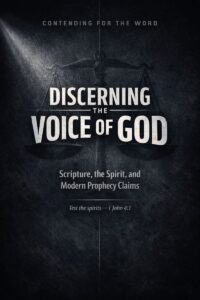⏱️ Estimated Reading Time: 4 min read
Unresolved relationship conflicts, especially those leading to estrangement, cause deep emotional and spiritual damage. When one or both parties refuse to admit wrongdoing, the path to resolution and restored peace remains blocked. However, for believers, there is always hope. Through Christ and His Word, we find a path forward, even amid strained relationships.
Overcoming Grief in Estranged Relationships: A Biblical Path to Peace
Grief over unresolved relationships can be overwhelming. Yet the Bible offers real hope. Romans 15:13 reminds us, “May the God of hope fill you with all joy and peace in believing.” Even when reconciliation seems distant, believers can abound in hope by trusting in God’s promises.
The Role of Repentance and Forgiveness in Healing Estranged Relationships
Scripture speaks extensively about repentance, forgiveness, and love. The gospel of Jesus Christ offers a new pattern for handling conflicts: grace and truth. Christ commands us to love one another as He has loved us (John 15:12-13). True healing in estranged relationships begins with repentance and forgiveness—cornerstones of the Christian life.
How to Find Hope Amid Estrangement: Trusting God’s Word for Reconciliation
What happens when the other person refuses to repent? Jesus teaches us in Matthew 7:3 to examine our own hearts first. Through prayer, Scripture, and the power of the Holy Spirit, we can trust that God is at work—even when restoration seems impossible.
Walking in Love: How Believers Can Navigate Unresolved Relationship Conflicts
As Christians, we are called to love even our enemies and pray for those who hurt us (Luke 6:27). Walking by the Spirit (Galatians 5:22-23) enables us to respond with love, patience, and kindness, even when faced with hostility or rejection.
Biblical Insights on Forgiveness: Finding Peace in the Midst of Estrangement
Jesus emphasizes forgiveness throughout the Gospels. In Matthew 18:15-17 and Mark 11:25, we are called to forgive freely and readily. Forgiveness is not contingent on the other person’s repentance—it is a posture of the heart, trusting God with the results.
How to Love Your Enemy: Practical Steps for Resolving Conflicts with God’s Help
Loving those who wrong us requires active steps: praying for them, seeking peaceful dialogue, and maintaining a soft heart. Proverbs 15:1 reminds us that “a soft answer turns away wrath.” Following this wisdom can deescalate tensions and open doors for reconciliation.
The Power of Prayer in Overcoming Grief and Forgiveness in Estranged Relationships
Prayer is essential when navigating the pain of estrangement. Pray for your own heart to be softened, for the offender’s heart to be changed, and for God’s will to be done. Prayer aligns us with God’s purposes and strengthens us for the journey toward healing.
How to Respond When Repentance Is Not Offered: A Biblical Guide
When repentance is withheld, believers must trust God’s timing. Psalm 37:5 encourages us to “Commit your way to the Lord; trust in Him, and He will act.” Our role is to remain faithful, prayerful, and loving, even when restoration is delayed.
Restoring Unity: The Biblical Approach to Healing Estranged Relationships
Unity matters deeply to God. James 1:19 advises us to be “quick to hear, slow to speak, slow to anger.” Even when facing resistance, continuing to speak with patience and love can open the door to healing. God honors our efforts to pursue peace.
The Path to Reconciliation: Applying Scripture to Resolve Relationship Conflicts
Reconciliation is often a slow process requiring endurance, humility, and persistent prayer. Romans 15:5 encourages believers: “May the God of endurance and encouragement grant you to live in such harmony with one another, in accord with Christ Jesus.” As we cling to Scripture and trust God’s work, we can walk the path toward restored relationships.



